Click here to go back to the Leg Con 2021 Participant home page
Brooks Allen
Brooks Allen serves as Education Policy Advisor to Governor Newsom and Executive Director of the California State Board of Education. He previously served as Assistant Superintendent, CCEE Liaison and Legal Counsel at the Marin County Office of Education and as Vice President of Policy and Legal Affairs at Common Sense Kids Action. Brooks worked at the ACLU Foundation of Southern California for ten years as a Staff Attorney and then the Director of Education Advocacy. He represented students and families as a Skadden Fellow and Staff Attorney at Lawyers’ Committee for Civil Rights of the San Francisco Bay Area.
Steven Bradford
Steven Bradford brings a lifetime of experience to the California State Senate. In over two decades of public service – first as a Gardena City Councilmember, then as a State Assemblymember and now as a State Senator – Bradford has proven himself to be an unwavering citizen activist. He views himself as a public servant and not a politician. Public service was instilled in him by his parents who taught him the value of giving back to the community.
In 2013, Assembly Speaker John Perez named Bradford Chair of the Assembly Select Committee on the Status of Boys and Men of Color. Under his leadership, the committee examined many institutional injustices that plague young Black, Latino, and Asian/Pacific Islander males in California, which he continues to work on in the Senate. Currently he chairs the Senate Banking and Financial Institutions committee and serves on several other committees including the Appropriations committee.
Kim Pattillo Brownson
Kim is an appointee of Governor Gavin Newsom to California’s Early Childhood Policy Council, as well as to the California State Board of Education. She has devoted her career to educational equity issues, especially early childhood education and funding. She is presently the Ballmer Group’s Director of Strategy and Policy in Los Angeles. When Kim was Managing Director at the Advancement Project, she worked closely with the California State PTA in support of Proposition 38 for more equitable education funding in California.
Tom DeCaigny
Tom DeCaigny was appointed Executive Director of the California Alliance for Arts Education in January 2020. The Alliance advocates for high-quality arts education for all students by providing policy expertise and by mobilizing a statewide network of advocates and allied partners
Prior to joining the Alliance, Mr. DeCaigny was the Director of Cultural Affairs at the San Francisco Arts Commission, a city department that champions the arts as essential to daily life He has held board leadership positions with a variety of national and international organizations including the U.S. Urban Arts Federation and World Cities Culture Forum as well as with the California Alliance for Arts Education and LYRIC, an LGBTQQI youth organization.
Maria Elena Durazo
María Elena was born the seventh child in a family of eleven children to migrant worker parents. Growing up, María Elena traveled with her family, following the crops throughout California and Oregon, and experiencing the exploitative conditions and hardships that migrant laborers suffer In college she became involved in the Chicano Movement at the urging of her older brother. Then she entered the labor movement as an organizer for the International Ladies Garment Workers Union (later called UNITE, the Union of Needle trades, Industrial and Textile Employees).
By 1987, María Elena was ready to lead a drive by the rank and file of HERE Local 11 to make the union more responsive to its majority-Latino membership. The organizing drive successfully instituted a shop steward system that educated the rank and file on their rights, workers were now able to participate in negotiating their union contracts and all meetings and publications were from then on bilingual.
In 2004, she became the Executive Vice President of UNITE-HERE International, the organization made up of the UNITE and HERE unions which had merged.
In 2008, María Elena Durazo served as National Co-Chair of the Barack Obama Presidential Campaign.
Michael Essien
Michael Essien is an educational leader who believes in equity and reducing the statistical predictability of outcomes for marginalized students in education. He is the founder and CEO of Essien Education Group. It is an education consulting group formed to assist students, parents, educators, and districts with improving outcomes. For 8 years and counting, Michael has worked as a middle school administrator in the Southeast section of San Francisco seeking to address inequitable outcomes at his school. His focus on Push-In Services, Restorative Practices and Community Schools as strategies to improve outcomes for students and families has received notoriety.
John Fensterwald
John Fensterwald is editor-at-large at EdSource, focusing on K-12 issues and education state policies, which he joined in 2012. Preceding that, he founded the “The Educated Guess” website, a source of California education policy reporting, sponsored by the Silicon Valley Education Foundation. John wrote editorials for the Mercury News in San Jose, with a focus on education, for 11 years before that.
Jesse Gabriel
Jesse Gabriel was first elected to the California State Assembly in June 2018. He represents the 45th Assembly District, which includes much of the west San Fernando Valley. Gabriel currently serves in the Assembly Leadership as Majority Whip, and was recently elected by his colleagues as Chair of the California Legislative Jewish Caucus. Gabriel has championed efforts to address California’s housing and homelessness crisis, strengthen public education, fight climate change, pass commonsense gun safety measures, and protect vulnerable communities.
Christina Garcia
Christina Garcia has been called a “Force of Nature,” first as a dynamic community organizer and civic activist, and now as a new generation of leader in the California State Legislature. Reflective of the cultural change as a state and the new realities of a diverse population of color, Cristina Garcia has embraced her own communities with a message of hope and inclusion. She has pushed to make all levels of government more transparent and accountable to voters. In Sacramento, she crashed the good old boys’ network and is leading the way to empower women to take their seat at the table. She fights for change, with a passion to improve the lives of working people and to brighten the path to the future for our next generation.
Lorena Gonzalez
Assemblywoman Lorena Gonzalez was elected in May of 2013, promising to fight for our state’s working and middle classes, and she hasn’t stopped yet. Currently, she chairs the Assembly Appropriations Committee and serves on the Judiciary and Labor & Employment committees.
In 2017, Lorena succeeded in making California the first state in the nation to subsidize diapers for parents in need — hardworking mothers and fathers struggling to juggle job and parenting responsibilities. AB 480, the Diaper Affordability Act, was signed by Governor Jerry Brown on Oct. 12, 2017. Lorena has passed critical bills that mandate public schools test their drinking water for lead. Taking on women’s equity issues large and small, Lorena co-authored the nation’s toughest rules to close the gender pay gap and wrote the legislation that finally forced California to classify high school cheerleading as a sport.
Lorena is the first Latina in California history to Chair the Assembly Appropriations Committee. She is also Chairwoman of the Select Committee on Women in the Workplace. She served as Chair of the Latino Caucus from 2018-2020, with her term ending in October 2020.
Kevin Gordon
Widely viewed among the top education advocates in California, Kevin is the president of, and one of the founding partners of, Capitol Advisors Group. He was the longtime Executive Director of the California Association of School Business Officials (CASBO), and previously served as the Chief Lobbyist and Assistant Executive Director of the California School Boards Association (CSBA). He also served as Chief of Staff to Congressman Robert T. Matsui and as a legislative advocate for the California Building Industry Association (CBIA).
Sherry Skelly Griffith
Sherry Skelly Griffith has worked in education policy for 35 years in the State Capitol and in Washington, D.C. She has served as the California State PTA’s Executive Director since 2015 overseeing the operations and policy implementation of the association in partnership with the president, the board and staff. Prior to the PTA Sherry served 13 years with the Association of California School Administrators (ACSA), representing ACSA before the U.S. Department of Education, Congress, the California Legislature, the Governor and the State Board of Education serving as their Governmental Relations Director.
Sherry also served as the Executive Director of the California Curriculum Commission, overseeing 32 staff and representing State Superintendent Delaine Eastin. Sherry also served in the California State Assembly for a member of the Assembly Education Committee and as legislative director for the California Children’s Lobby. Sherry started her career as a preschool teacher and before and after school program director.
Chris Hoene
Chris Hoene has been the executive director of the California Budget & Policy Center since 2012. He has 20 years of leadership in state and local policy research and analysis, particularly on fiscal policy issues. Prior to joining the Budget Center, Chris was director of the Center for Research and Innovation at the National League of Cities in Washington, D.C. Chris also previously worked for the Center on Budget and Policy Priorities in Washington, D.C. and the Public Policy Institute of California in San Francisco
Jessica Holmes
Jessica Holmes is the Assistant Program Budget Manager for pre-K through 12th grade education at the California Department of Finance. In her time at Finance, Jessica has worked on the Proposition 98 formula and managed the state budgets for K-12 accountability, assessments, curriculum and instruction, charter schools, early childhood education and child care, financial aid, workforce training, the Commission on Teacher Credentialing, and the Community Colleges Chancellor’s Office. Prior to working at the Department of Finance, Jessica taught high school math and engineering in North Highlands, CA, and served as a budget and legislative analyst for the California Health and Human Services Agency.
Celia Jaffe
Celia Jaffe, President of California State PTA, has worked with and for children and supported public education all her life. Five years of teaching high school English and 10 years as a school board trustee have broadened Celia’s firsthand experience in education. But it is PTA that has been Celia’s passion, cause and joy for over 20 years. From jog-a-thon to parliamentarian to legislation to volunteer coordinator, there are few PTA positions Celia has not tackled, including president of Fourth District PTA. As California State PTA President, Celia has worked with wonderful local PTA leaders throughout the state.
Kevin Kiley
Kevin Kiley represents the 6th Assembly District, which includes Placer, Sacramento, and El Dorado counties. He is the Vice-Chair of the Education Committee and the Privacy and Consumer Protection Committee, and is a member of the Higher Education, Housing and Community Development, and Judiciary committees. The son of a special education teacher, Assemblymember Kiley taught tenth-grade English at an inner city public high school and is works to advance education opportunity for all Californians, with measures to expand parental choice and access to career education.
Prior to his election, he served as a Deputy Attorney General. He has authored legislation to protect victims and support law enforcement. He has a bachelor’s degree from Harvard, a law degree from Yale, and a Master’s in secondary education from Loyola Marymount, and has served as an adjunct professor at McGeorge School of Law.
Anna King
Anna King has over 20 years of leadership experience at all levels of PTA and was elected president-elect of National PTA in June 2019. She previously served at the national level as a member of the board of directors, vice president of membership and as chair of several committees.
At the state level, King is vice president for Douglass PTSA in Oklahoma City and has served as Oklahoma State PTA president, council president and worked on membership and legislative committees. King is also involved in other community activities as a board member of the Douglass Law and Public Safety Academy, a Salvation Army volunteer and the co-lead for Moms Demand Action NE Chapter.
Carol Kocivar
Carol is a former president of the California State PTA and current legislative advocate in the areas of education and the state budget. She was honored in 2020 with National PTA’s Shirley Igo Advocate of the Year Award, presented to an individual PTA member who, through their leadership and advocacy efforts, affected federal policy priorities within PTA’s annual Public Policy Agenda. Carol’s advocacy includes work on increasing investments in quality public education, school infrastructure, public school choice and charter accountability, as well as safe and supportive school environments.
Evan Low
Evan Low has represented Silicon Valley residents in the California State Assembly since 2014. He first held elected office as a Council member for the City of Campbell, where he went on to make history in 2010 as the youngest openly LGBTQ+ mayor in the country. Assembly member Low now serves as the Chair of the state’s Business and Professions Committee and also serves as Chair of the LGBTQ Caucus. In 2015, he launched the California Legislative Technology & Innovation Caucus, whose members include a bi-partisan group of Assembly members and Senators. Assembly member Low is also Vice Chair of the Asian & Pacific Islander Legislative Caucus. During his time as an elected official, Assembly member Low has authored numerous laws that have increased government transparency, advanced equality, reformed the criminal justice system, helped small businesses, and encouraged job growth
Patrick O’Donnell
First elected to the California State Assembly in November 2014, Assemblymember Patrick O’Donnell represents the 70th District, which includes Long Beach, San Pedro, Signal Hill and Catalina Island. He brings over 20 years of classroom experience as a teacher to his role as Chairman of the Assembly Education Committee. He has worked to increase funding for schools, including the creative arts, special education programs, expanded investments in PK-12 school facilities, more UC/CSU slots for California
residents; safe learning environments for LGBTQ students, and career technical/vocational training. He also serves on the Assembly Committees on Transportation, Public Employment and Retirement, and Budget, including the Budget Subcommittee on Education Finance. He advocates for a balanced budgeting approach that promotes increasing the state’s rainy-day fund to avoid future economic downturns while paying down debt and responsibly living within our means.
Dr. Richard Pan
Dr. Richard Pan is a pediatrician, former UC Davis educator, and State Senator proudly representing Sacramento, West Sacramento, Elk Grove and unincorporated areas of Sacramento County. Dr. Pan chairs the Senate Committee on Health. He also serves as Chair of the Senate Select Committee on Asian Pacific Islander Affairs and the Asian Pacific Islander Legislative Caucus. He serves on the Senate Committees on Budget and Fiscal Review; Education; Business, Professions and Economic Development; Human Services; and the Budget and Fiscal Review Subcommittee on Health and Human Services. Dr. Pan also serves on the Special Committee on Pandemic Emergency Response. Dr. Pan continues to practice pediatrics at Sacramento Primary Care Center. Elected to the Assembly in 2010 and later elected as a state senator in 2014, Dr. Pan authored SB277, abolishing non-medical exemptions for legally required vaccinations for school, for which TIME magazine called him a “Hero” of vaccine history.
Anthony J. Portantino
Anthony Portantino is a California State Senator and Chair of the Senate Appropriations Committee. Senator Portantino represents California’s 25th State Senate District, which includes Sunland/Tujunga, Atwater Village, and the Griffith Park areas of the city of Los Angeles, Burbank, Glendale, La Crescenta, Montrose, La Cañada Flintridge, Pasadena, Altadena, South Pasadena, San Marino, Sierra Madre, Monrovia, Bradbury, Duarte,
Glendora, San Dimas, La Verne, Claremont and Upland. He chairs the Senate Appropriations Committee and serves on the Senate Committees for Banking and Finance, Governmental Organization, and Insurance. Prior to his years as a senator, he spent many years working in film and television production.
Anthony Rendon
Anthony Rendon represents the 63rd Assembly District, (which includes nine cities in Southeast Los Angeles County), Assembly Member Rendon was sworn-in as the 70th Speaker of the California State Assembly on March 7, 2016. In 2017, Rendon led a legislative session that included passage of a landmark $52 billion transportation funding plan, extension of California’s cap-and-trade program, first-of-its-kind clean air measure, and legislation to address the affordable housing crisis. The 2017 state budget included expansion of the earned income tax credit and childcare eligibility, record investment in education, and reforms to the Board of Equalization and University of California. Prior to serving in the Assembly, Rendon was an educator, non-profit executive director, and environmental activist.
John Rogers
is a Professor at UCLA’s Graduate School of Education and Information Studies. He is Director of UCLA’s Institute for Democracy, Education, and Access and Faculty Director of Center X, which houses UCLA’s Teacher Education Program, Principal Leadership Program, and professional development initiatives. Rogers studies the relationship among democracy, education, and different forms of inequality. He also has written widely on democratic participation and community organizing as strategies for advancing educational equity and civic renewal.
Wesley Smith
Dr. Wesley Smith is executive director of the Association of California School Administrators, the largest school leadership group in the nation. ACSA is foremost a champion for the state’s more than 6 million students. Having served in a variety of school leadership roles, including elementary and middle grades principal, assistant superintendent and superintendent, Dr. Smith understands the intricacies and influences in public education. He believes in a bold new future for ACSA and ensuring it is the most influential voice in public education for years to come.
Changes in the standards taught and tested in California, a new school funding formula and the redesign of education accountability systems will require ACSA leadership. Dr. Smith is uniquely poised to lead that charge to protect the present and the future of all students.
Association of California School Administrators local and regional boards; representative to the Equity, Achievement and Diversity for Student Success Committee. Board member on the State of California Fiscal Crisis & Management Assistance Team (FCMAT).
Tony Thurmond
State Superintendent of Public Instruction Tony Thurmond is responsible for the largest public school system in the nation, with more than 6.3 million students and over 10,000 schools. Since taking office earlier this year, State Superintendent Thurmond has made improving equity, access, and opportunity for California’s public school students his top priority. He has created initiatives that are focused on closing the achievement gap for our state’s most vulnerable students and is dedicated to supporting educators in delivering an equitable education to all students. During his 4-year tenure in the Assembly, Thurmond authored legislation that successfully expanded the free lunch program, bilingual education, and the Chafee Grant college scholarship program for foster youth. Additionally, Thurmond’s legislation guaranteed preferential voting rights for student school board members, improved access to families for early education and childcare, and shifted millions of dollars directly from prisons to schools. State Superintendent Thurmond is a social worker, educator, advocate, and public school parent who continues to work tirelessly on behalf of all student to ensure they reach their full academic potential.
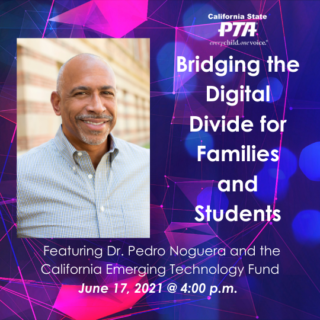 On June 17, 2021 we held an important and informative webinar about bridging the digital divide, where we discussed the impact of integrating technology into learning, and revealed highlights from the CETF-USC statewide survey on distance learning.
On June 17, 2021 we held an important and informative webinar about bridging the digital divide, where we discussed the impact of integrating technology into learning, and revealed highlights from the CETF-USC statewide survey on distance learning.
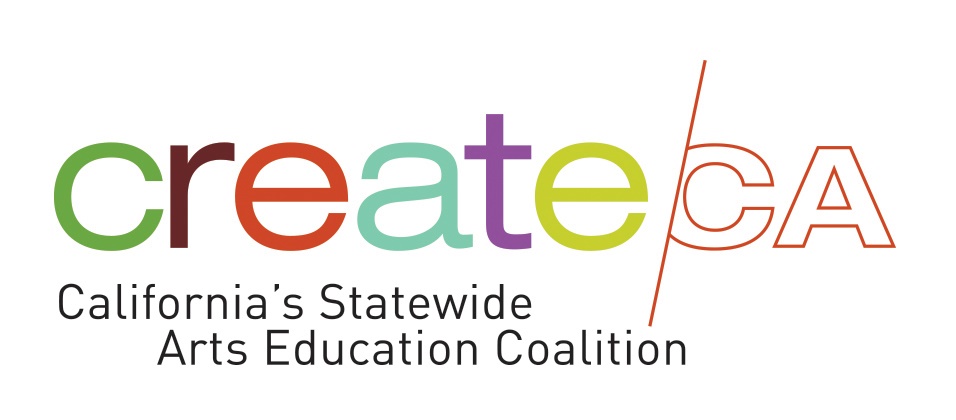
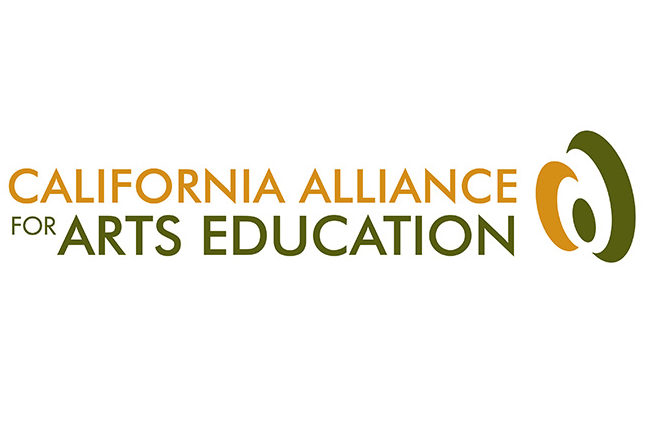 Operating together under the Create CA name, they will combine the power of Create CA’s dynamic communications and innovative data project with the Alliance’s proven policy and advocacy track record and statewide network supporting districts and counties to provide a full arts education to all students. They recognize that students who are low income and of color face the greatest barriers to a full and relevant arts education. Collectively, they will continue to fight for students to get what they need and deserve, because ultimately they know this is an equity issue.
Operating together under the Create CA name, they will combine the power of Create CA’s dynamic communications and innovative data project with the Alliance’s proven policy and advocacy track record and statewide network supporting districts and counties to provide a full arts education to all students. They recognize that students who are low income and of color face the greatest barriers to a full and relevant arts education. Collectively, they will continue to fight for students to get what they need and deserve, because ultimately they know this is an equity issue.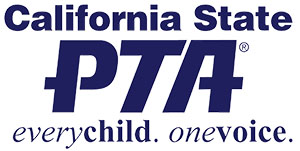 School Reopening Principles
School Reopening Principles

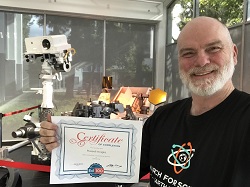 Use Ed100.org to develop informed advocates
Use Ed100.org to develop informed advocates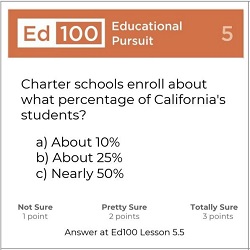 Have some fun
Have some fun “I use Ed100 to keep up to date with education policies in a way that helps me explain the issues clearly to others.”
“I use Ed100 to keep up to date with education policies in a way that helps me explain the issues clearly to others.” Advocacy Agenda for Equity
Advocacy Agenda for Equity